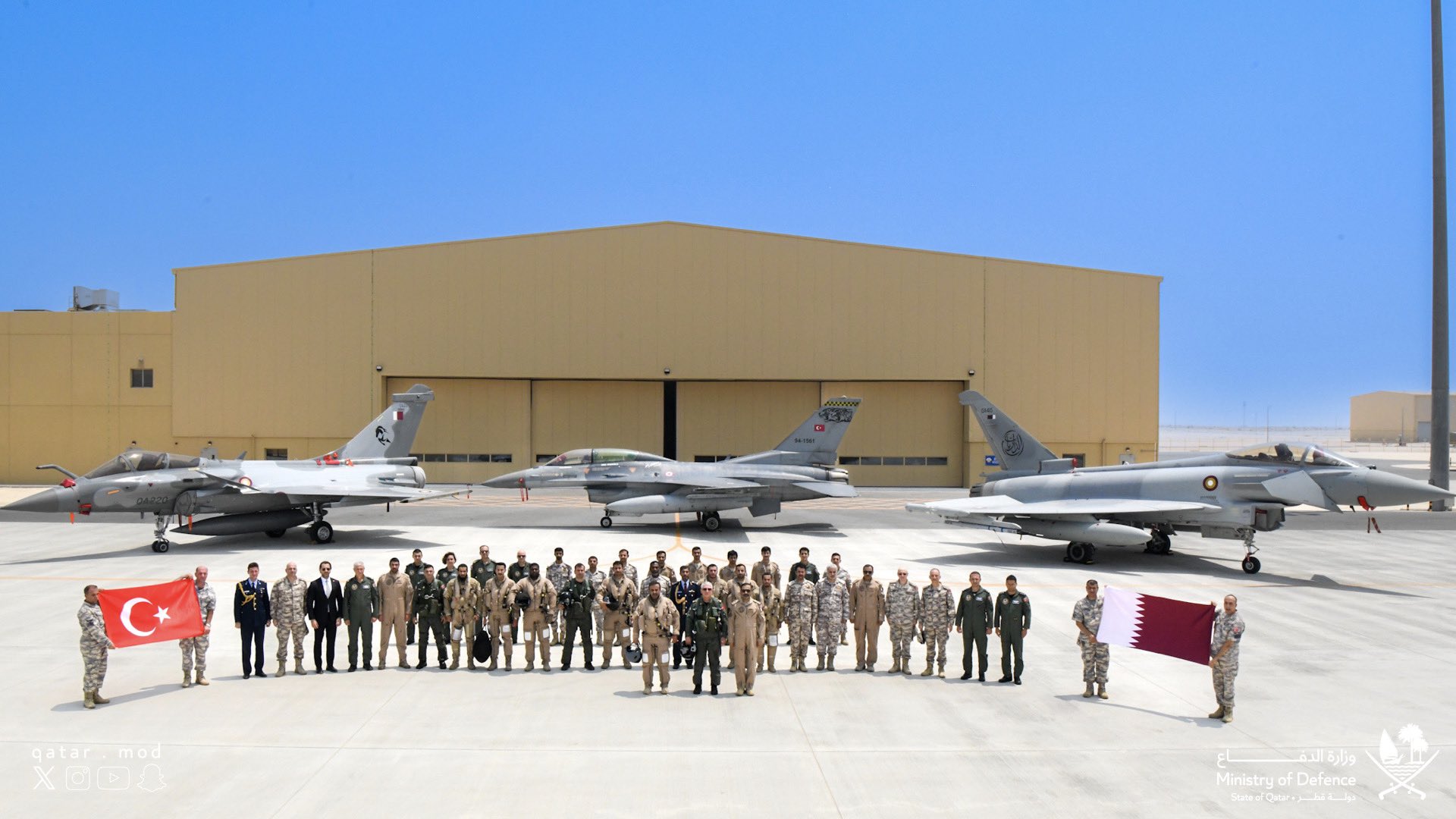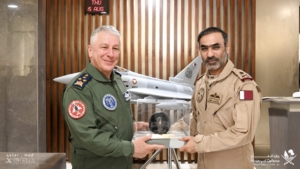Turkey and Qatar form joint squadron
August 29, 2024

Turkey and Qatar have formed a joint squadron with the aim of boosting interoperability and co-operation, and to thereby enhance mutual security and to promote regional security.
Commander of the Turkish Air Force (THK) General Ziya Cemal Kadıoglu visited the Qatari-Turkish Joint Squadron at Qatar’s Dukhan Air Base, where he was hosted by Staff Major General (Pilot) Jassim bin Mohamed Al-Mannai, Commander of Qatar Emiri Air Forces. Together the two senior officers inspected “the work and training progress” and “the latest preparations and facilities.”

The establishment of the Qatari-Turkish joint squadron came five years after Turkey inaugurated a military base in Qatar, and the new unit promises to boost interoperability and co-operation, while providing new training opportunities and enhancing security.
For Qatar the arrangement promises unique training opportunities with one of the strongest air forces in the region – an air force that has experience in depth. The recent rapid expansion of the Qatar Emiri Air Forces (from 12 fighter aircraft to 96) means that many Qatari fighter pilots are relatively inexperienced, and exposure to the Turkish Air Force (many of whose pilots have significant combat experience) and its CONOPS may be very helpful, particularly in the light of recent strains in Qatar’s relations with some of its GCC partners, which has reduced training opportunities with some neighbouring air forces.
Turkey, whose combat air element remains firmly based on the F-16 (with a small remaining force of F-4E-2000 Terminator aircraft – upgraded Vietnam-era Phantoms!) will be able to get invaluable experience of operating with, and against more modern fighter aircraft types. The THK will get a closer look at the Eurofighter Typhoon, which it is negotiating to procure, and the Rafale, which is operated by Turkey’s historic rival (and sometime foe) Greece. This promises to help Turkey to develop better tactics against more modern adversary aircraft.
The number, and type of aircraft involved remain unclear, and it is not known whether Qatari and Turkish units, personnel and aircraft are permanently assigned to the joint squadron, or whether the arrangement is looser and more informal, though it is believed that a joint command has been established in Doha. Nor has it been made clear what missions will be entrusted to the squadron – though there have been suggestions that there will be joint combat air patrols in the region as well as training flights.
Turkey and Qatar have a mutual interest in ensuring stability in the Middle East, and face shared security challenges. The new squadron promises to enhance the prosperity and security of both nations, while contributing to regional stability.
















